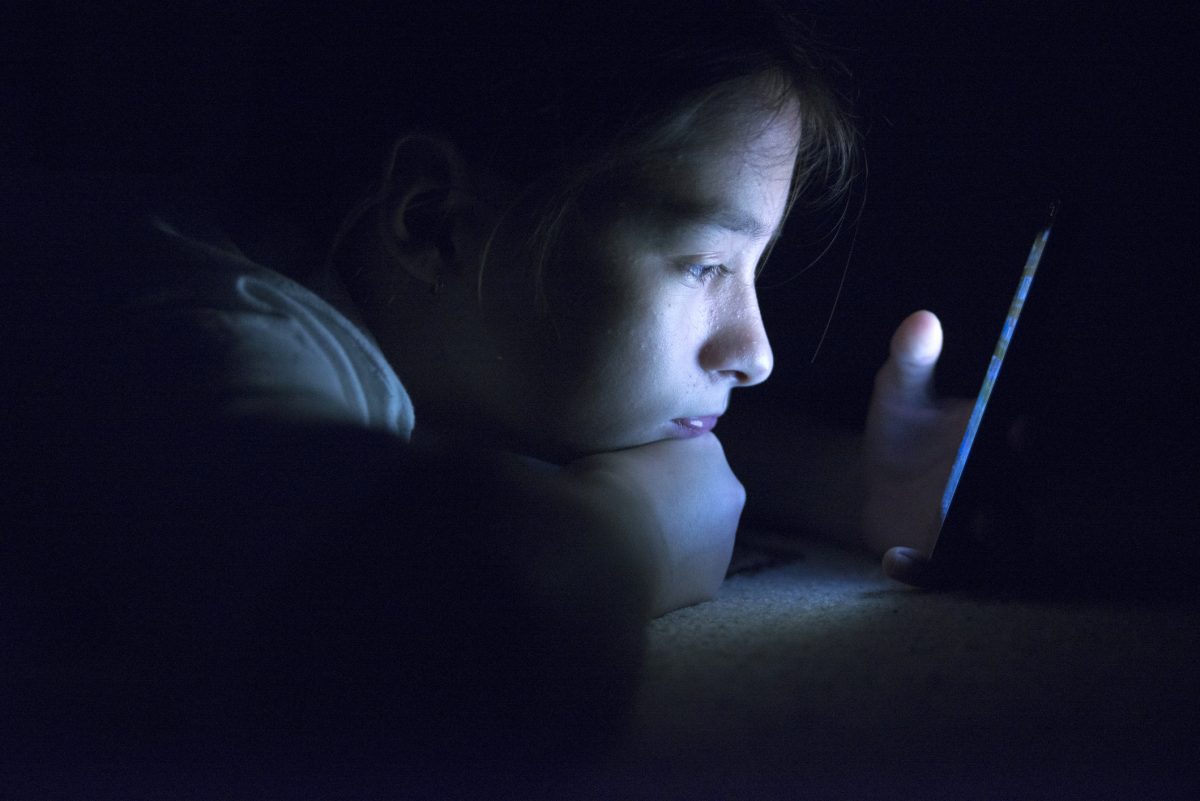It’s bedtime and your body is exhausted, but your brain is wide awake. Sound familiar? Your problem might be stress or too much caffeine, but it could also be too much blue light.
Study after study has shown that blue light emitted from screens can keep us up at night. Because we typically stare at mobile devices up close — closer than the TV or computer — they’re particularly troublesome.
Why is blue light bad for sleep, and how can you rest better in the age of the smartphone?
Light Color and Your Circadian Rhythm
Your circadian rhythm is like an internal clock that tells your body when it’s time to do certain things, including go to sleep. When it’s dark, the brain releases a hormone called melatonin, which makes you sleepy.
All light can suppress melatonin, but blue light is the most disruptive. Blue light boosts attention, reaction times and mood. This is useful during the day. However, at night, it can throw your circadian rhythm out of whack.
Before electric lighting was invented, the sun was the primary light source. While it was dark, people slept or used candles, which emit warm orange and red hues (like the sun during early morning and late evening). People were exposed to bright blue light only during daylight hours.
Now, when it gets dark outside, we turn on more lights inside — more blue lights. Modern energy-efficient light bulbs emit more blue light than the traditional incandescent bulbs, and the LED lights in electronics emit even more.
How to Avoid the Blues
Most experts suggest avoiding screens for at least 2-3 hours before going to bed and to sleep in a completely dark room. If that’s not an option for you, try these four tips to reduce your exposure:
1. Use tech to manage your tech.
Some device manufacturers now build nighttime modes into their products. If enabled, the screen will gradually change to warmer colors as bedtime approaches and then brighten back up in the morning. Apps like f.lux® and Twilight offer users the same features.
2. Get more sunshine.
This can improve your ability to sleep at night and make you more alert during the day.
3. Use a red nightlight.
Red light is least likely to suppress melatonin and change your circadian rhythm.
4. Don’t forget the kids’ rooms.
Blue light can be an even bigger problem for children, who need more sleep than adults, and for teenagers, who already don’t get enough sleep. During adolescence, the circadian rhythm shifts, causing teens to feel more awake at night. They’re also more sensitive to blue light than adults. In one study, teenagers who were exposed to one-tenth the amount of light as adults still suppressed more melatonin.
How else can you get a good night’s rest? Check out these sleeping tips.
Get more information about specific health terms, topics and conditions to better manage your health on bcbst.com. BlueCross BlueShield of Tennessee members can access wellness-related discounts on fitness products, gym memberships, healthy eating and more through Blue365®. BCBST members can also find tools and resources to help improve health and well-being by logging into BlueAccess and going to the Managing Your Health tab.






WellTuned provides inspiration and practical advice for healthy living.
WellTuned does not offer medical advice. Any personal health questions should be addressed to your doctor.